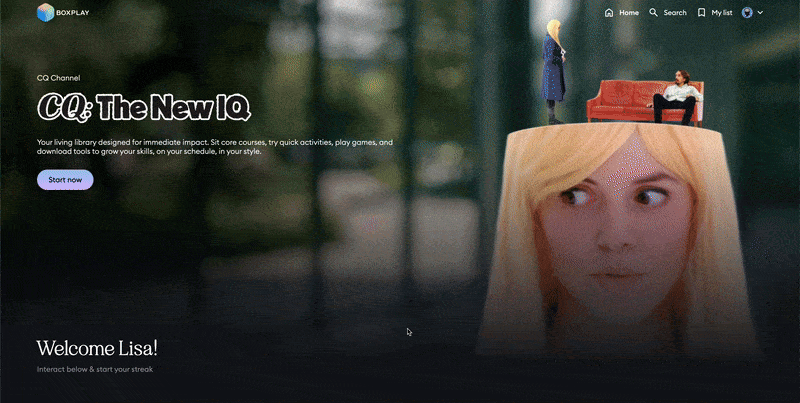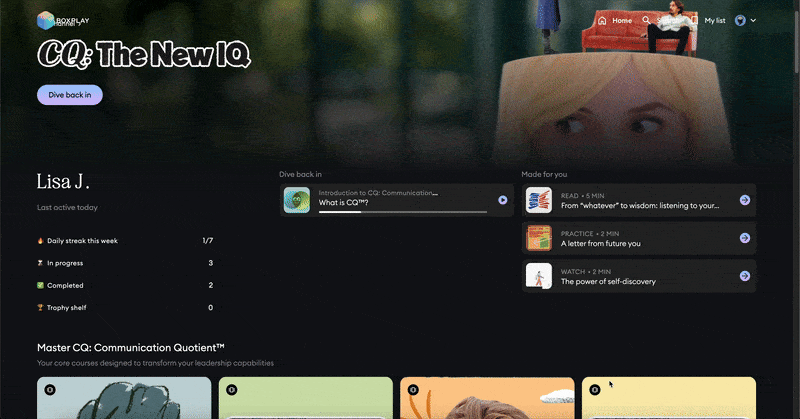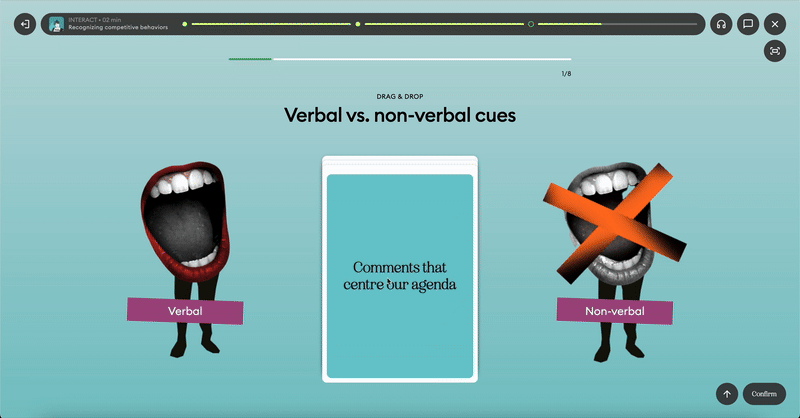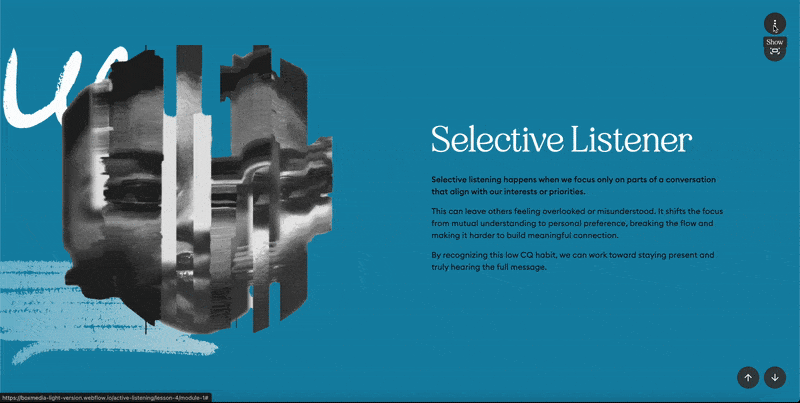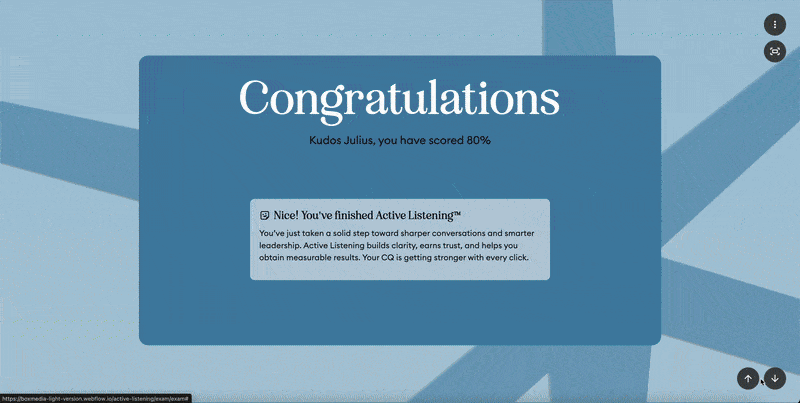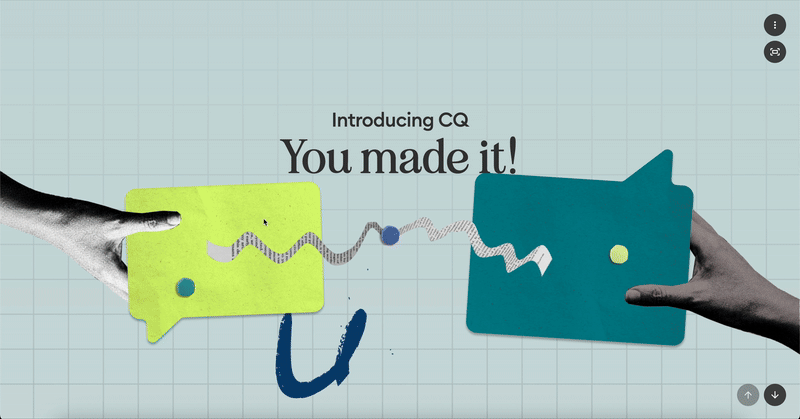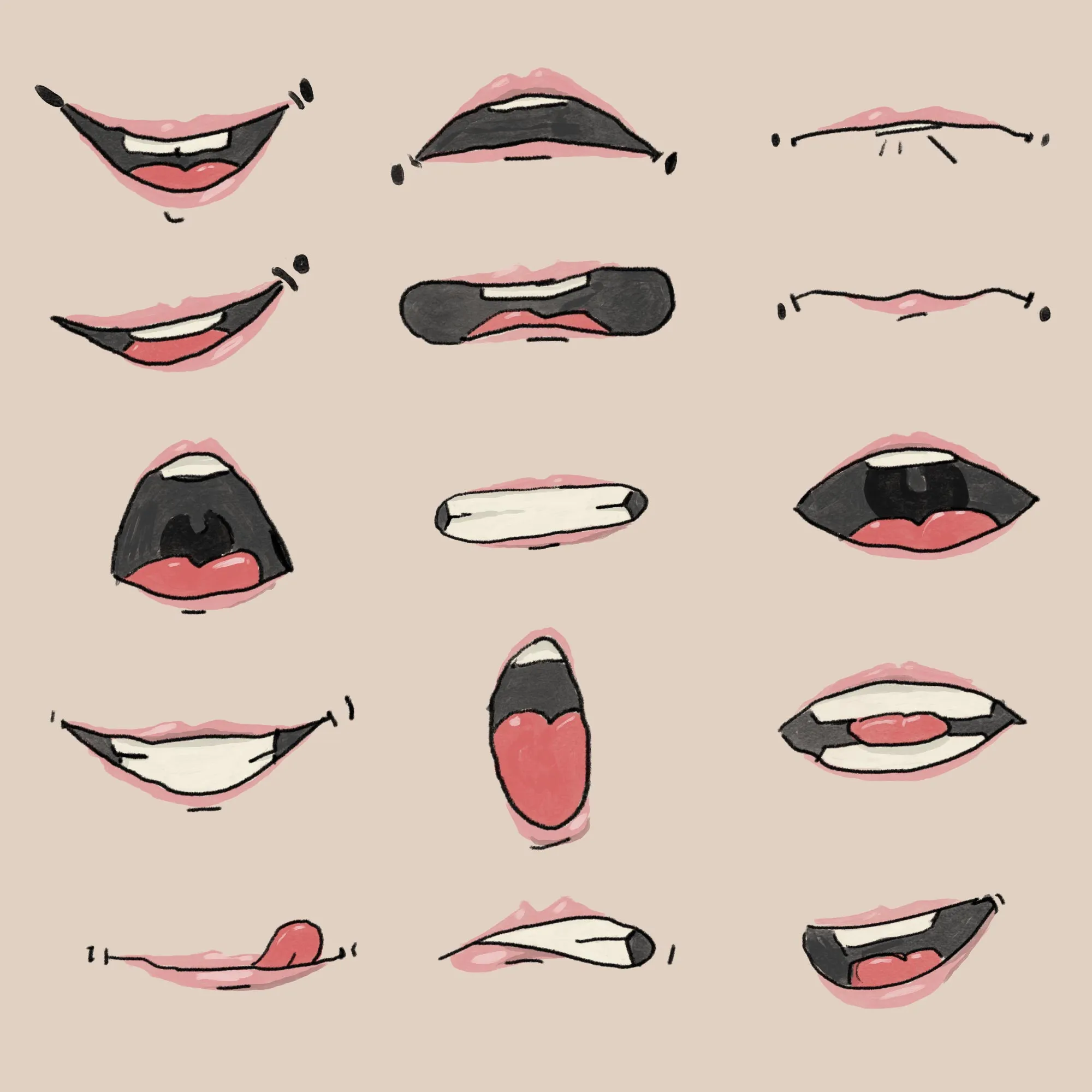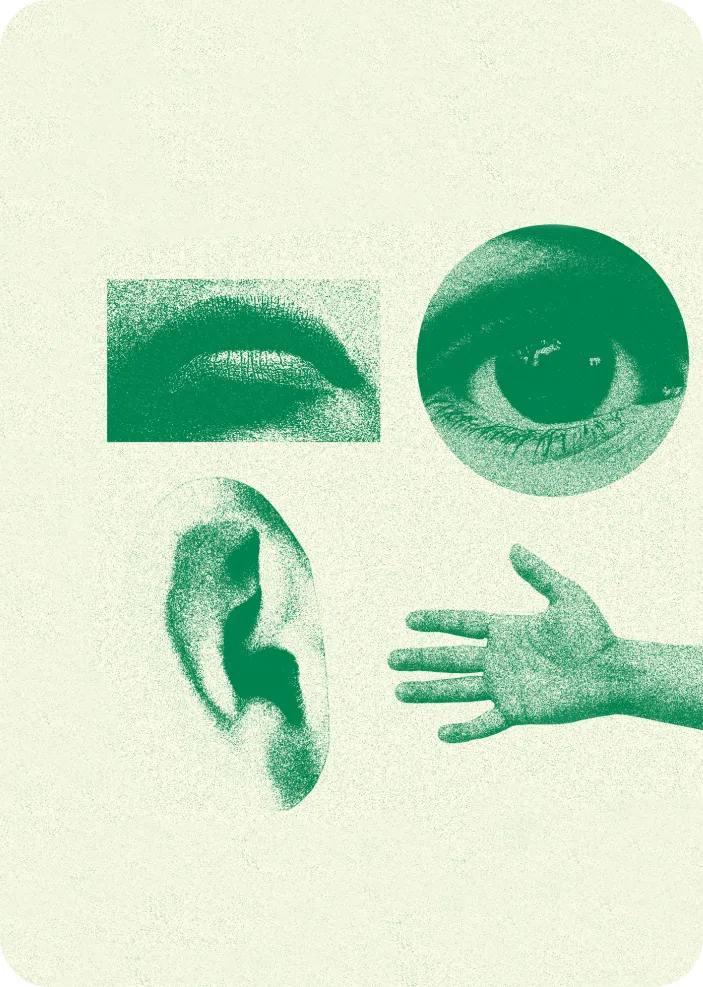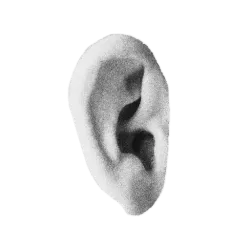


What type of listener are you ?
The first building block to mastering communication is not about expression. It’s about listening. Everyone has a listening type. Whats yours?
Answer these 20 questions to find out and gain valuable insights on how to rapidly improve your communication skills.
Box Media Holdings © All Rights Reserved 2025

Time to meet your
listening type.
But before you do, a quick note. The four Listening Types (Active, Competitive, Selective, Passive) aren’t black and white categories. While there’s one type that describes you today, that’s very likely to change at different points in your life, or even throughout the course of a week!
So think of this as a useful framework. One meant to help you achieve agile, focused interactions, while powering your unique potential.

Oops, today your style leans toward:
Passive Listener
You might sometimes feel…disengaged, zoned out, or uninterested.
Remember, your type can change depending on your mindset, or even the time of day! Learn more about the science.
Slipping into passive listening is pretty common. It happens when we’re overwhelmed, disengaged, or unappreciated. Zoning out may seem like saving energy, but it often leads to missed insights and extra work. The good news? With awareness and adjustments, you can enhance your communication skills.
That’s where our CQ Active Listening course comes in. Part of the CQ series, it provides practical, step-by-step tools to help you stay present, refine your communication, and build stronger relationships in both your work and personal life


It seems your current tendencies align with:
Selective Listener
You might sometimes feel… distracted, impatient, or pressed for time
Remember, your type can change depending on your mindset, or even the time of day! Learn more about the science.
It’s easy to slip into selective listening in today’s world, especially when juggling competing priorities. While multitasking can feel necessary, it often reduces focus and causes us to miss important details. The good news? With awareness and adjustments, you can enhance your communication skills.
That’s where our CQ Active Listening course comes in. Part of the CQ series, it provides practical, step-by-step tools to help you stay present, refine your communication, and build stronger relationships in both your work and personal life.


Hmm, your tendencies point to:
Competitive Listener
You might sometimes feel… direct, head-on, or restless
Remember, your type can change depending on your mindset, or even the time of day! Learn more about the science.
If you’ve scored as a competitive listener, you’re not alone. This tendency can easily emerge during long, repetitive meetings or when we’re eager to contribute. The good news? With awareness and adjustments, you can enhance your communication skills.
That’s where our CQ Active Listening course comes in. Part of the CQ series, it provides practical, step-by-step tools to help you stay present, refine your communication, and build stronger relationships in both your work and personal life.


Congratulations! Today your style leans to:
Active Listener
More likely to be… focused, empathetic, or engaged
Remember, your type can change depending on your mindset, or even the time of day! Learn more about the science.
Being an active listener is a fantastic skill. It shows you’re attentive and genuinely interested in understanding others.
But hold the fanfare: the truth is, it is unusual for any of us to be an active listener all of the time. In fact, it’s virtually impossible. But it is possible to become mindful of when we’re not listening properly, and to re-engage our active listening skills.
That’s where our CQ Active Listening course comes in. Part of the CQ series, it provides practical, step-by-step tools to help you stay present, refine your communication, and build stronger relationships in both your work and personal life.









